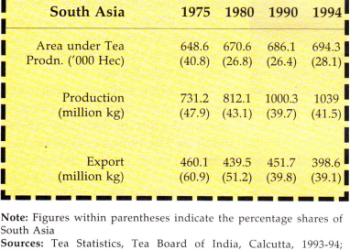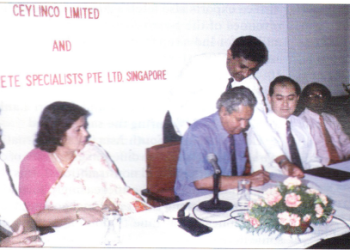The following report of the judgement of the Queen’s Bench Division (per Buxton J) relates the story premises (private and business) by the British Revenue, investigating what the Revenue suspected to be a serious tax fraud, in the course of which the Revenue attempted to remove the backup tapes and the hard disk of the computer system of the firm.
R v Inland Revenue Commissioners, Ex Parte Kingston Smith (A Firm)
(Queen’s bench division (crown office list)
BUXTON 12, 17, 30 July 1996 The Revenue suspected that an offence involving serious fraud in connection with tax had been committed by two individuals and that evidence of that offence was to be found among other places at the premises of their accountants. Accordingly, they applied exparte under 20C of the Taxes Management Act 1970 to a circuit judge at the Central Criminal Court for warrants to enter certain premises including those of the accountants and search them with a view to seizing such documents as might be required as evidence. The warrants were executed on July 11, 1996 when officials of the Revenue attended the accountants’ offices. The partners and staff of the firm cooperated and complied with all requests to make material available to the officers including requests requiring access to the firm’s computer system.
However, when the Revenue proposed the removal of back-up tapes and the hard disk of the computer system the firm became anxious that material irrelevant to the investigation would be scrutinized or extracted. The accountants asked their solicitor to be present and during the course of the search. sought advice from a leading counsel
In the latter’s view it was at least arguable that the application to the judge should not have been made without first attempting to secure cooperation from the accountants without a warrant, and that it had not been necessary for the warrants to have been obtained exparte and further that it might be ultra vires the terms of the warrant to remove material that was not the subject of a particular application even though the warrant was not so limited on its face.
The accountants applied immediately under RSC Ord 53 to a judge of the Queen’s Bench Division for judicial review of the Revenue’s decision to apply for the warrants exparte and of the circuit judge’s decision to grant the application. In addition, they sought and obtained by telephone an interim injunction whereby it was ordered that the search should cease on the accountants’ undertaking not to remove or destroy any documents and on the accountants’ solicitors removing the hard disk and holding it to the order of the court. The judge also ordered that the matter be returned inter partes at 10.30 a.m. the following day. However, the Revenue officers, who were not lawyers, refused to comply with the order without a document to show that it had been made and continued with the search. The Revenue considered applying to the court for the order to be lifted, and sought counsel’s opinion on the matter. However, they decided not to make such an application. Moreover, while both the solicitors advising on the search and senior administrators knew by at least 7:30 p.m. that an injunction had been granted, the search continued until 9.00 p.m. Indeed, after having been informed of the legal effect of the injunction the Revenue officer-in-charge of the search sought to negotiate terms on which the search could continue and later stated in an affidavit that she and a partner of the firm had agreed on such terms. The partner refuted that statement.
At the hearing held on the following morning, the Revenue attempted to justify the breach of the court’s order; accordingly, the judge ordered that the matter be relisted for the contempt of court aspect of the matter, to be examined further. At the further hearing, there was in the material before the court no apology apart from a personal apology from a junior solicitor, and no affidavit from any senior officer of the Revenue.
The parties subsequently settled the issues arising on the application for judicial review, and the accountants did not wish to pursue an action for contempt of court against the Revenue in respect of the breach of the injunetion. However, the court considered whether it ought to exercise its power to initiate proceedings for contempt of its own motion. The court accepted the counsel for the Revenue’s undertaking that strong advice would be given to the Revenue so that the insufficiency of material before the court would be rectified and at a further hearing where further evidence from the Revenue including an apology from the Deputy Chairman of the Board of Inland Revenue was considered, the court gave its consent to the proposed settlement between the parties and decided not to carry the matter any further. However, the court deemed it necessary to explain formally the objections to the manner in which the matter had been conducted previously.
Held (1) The jurisdiction of the court to grant injunctions, including interim injunctions against officers of the Crown was well established. In practical terms, the judges of the Queen’s Bench Division, in exercising that jurisdiction, unless satisfied that the application was clearly informed, sought to preserve the status quo and the interests of both parties until the matter could be herd properly with argument from both sides. In the instant case a balancing exercise had to be carried out between the rights of the accountants on the one hand, against whom there were no allegations of wrong-doing, and, on the other hand, the right of the Revenue not to be impeded wrongly in the exercise of their public duty under the warrant which had been at least prima facie properly obtained from a circuit judge. The object behind the order of July 11th that the search should cease on the accountants’ undertaking not to remove or destroy any documents and on the accountants’ solicitors removing the hard disk and holding it to the order of the court was to stabilize the situation until both parties had an opportunity to address adversary argument to the court. The continuation of the search for four hours after the making of the order was a plain breach of the court’s order and one that the court regarded with considerable gravity.
(2) The Revenue’s powers to enter premises for the purpose of searching for and seizing evidence relating to offences involving serious fraud were important; they were powers conferred on the Revenue by Parliament and powers that the Revenue had to have to discharge their duties. However, operations of the type conducted in the instant case had to be much more closely controlled and, in particular, immediate legal advice should be available when difficult circumstances arose. The officer- in-charge, who was not a lawyer, should have been told in the most direct terms of the effect of the court order. The lack of close control and particularly, the unsatisfactory arrangements for legal advice had led the non lawyers conducting the search, in conditions of considerable stress, to make two errors. The first error was in believing that they were not obliged to act on the injunction until formal service of a document had taken place. The second was in believing that despite the court’s or der the future conduct of the search could be negotiated. Once the court had made an order it had not been in the accountants’ power to give the Revenue permission to act contrary to that order.
Notes
For the Revenue’s powers to enter premises with a warrant to search and seize information, see Simon’s Direct Tax Service As 157,158.
Cases referred to in judgement
M Re (1994)! AC 377, sub nom MV Home Office [199313 All ER 537, HL.




